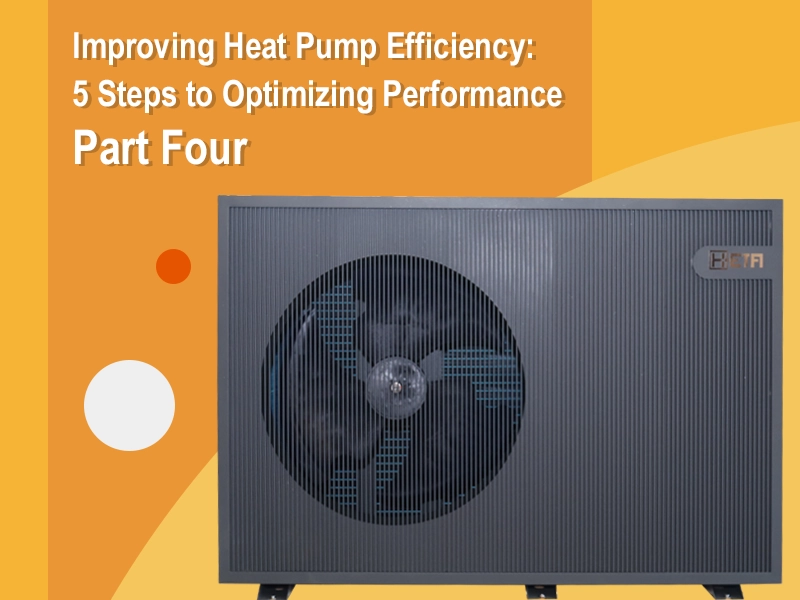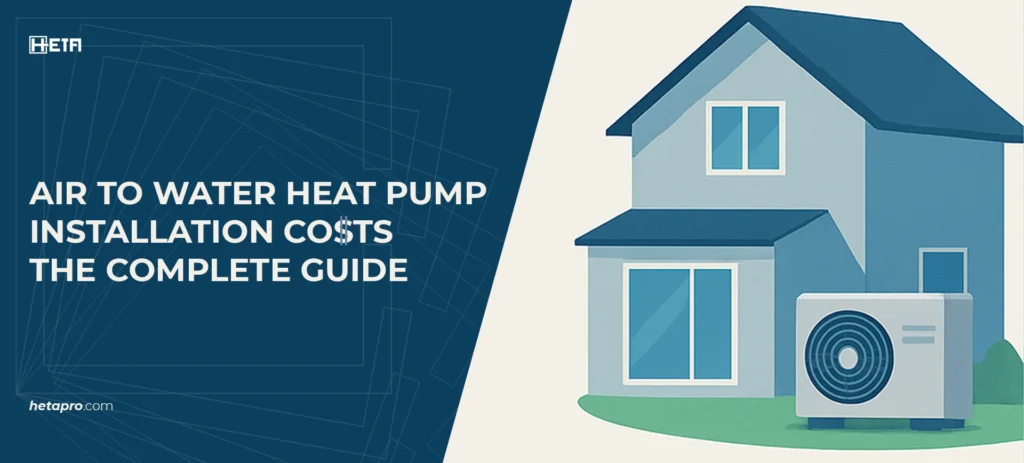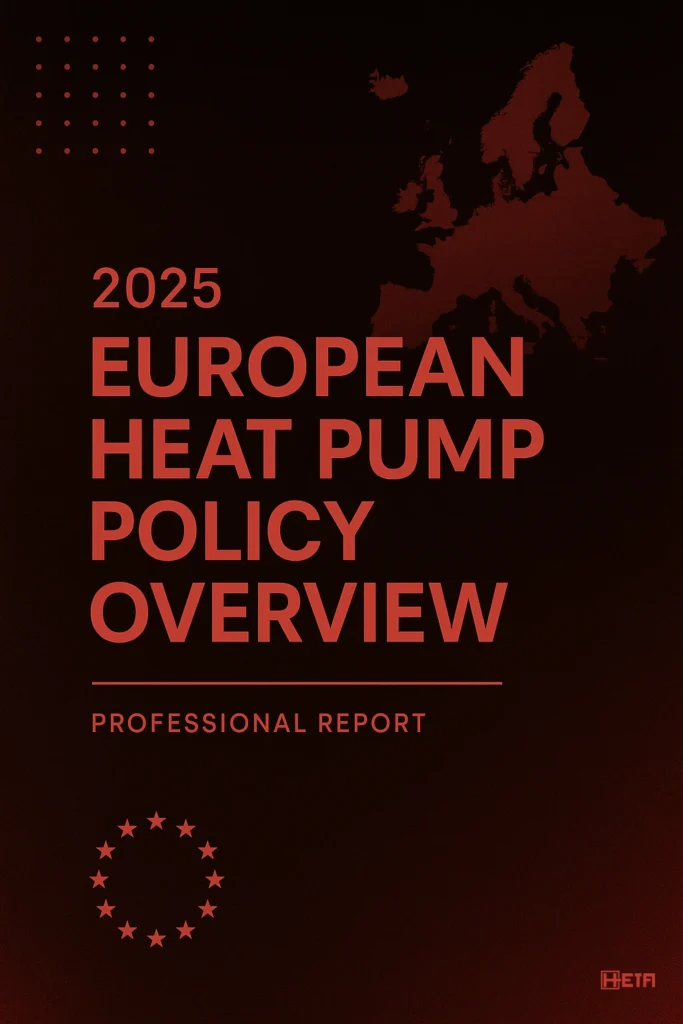In the pursuit of energy efficiency, maximizing the performance of your heat pump becomes critical. As a trusted authority in the industry, we provide a comprehensive guide to improving the efficiency of your heat pump, ensuring optimal performance and energy savings. Follow these five steps to unlock the full potential of your heat pump system:
1.Understand the operating principles of heat pumps
2.Implementing Maintenance Best Practices
4.Investing in Professional Upgrades

Part 4:Investing in Professional Upgrades
Professional upgrades present significant opportunities to enhance heat pump efficiency, providing homeowners with advanced technologies and features that optimize performance and reduce energy consumption. Here are several potential upgrades to consider:
Variable-Speed Compressor:
- Upgrading to a variable-speed compressor offers several advantages over traditional single-speed compressors. Variable-speed technology allows the compressor to adjust its speed and output capacity based on the heating or cooling demand of the home.
- By operating at lower speeds during periods of mild weather or partial occupancy, variable-speed compressors can deliver more precise temperature control and greater energy efficiency. This results in reduced energy consumption and lower utility bills while maintaining optimal comfort levels.
Energy Recovery Ventilation (ERV) Systems:
- Energy recovery ventilation systems provide a controlled means of ventilating a home while minimizing energy loss. These systems use heat exchangers to transfer heat between incoming and outgoing air streams, pre-conditioning incoming air to reduce the workload on the heat pump.
- By recovering and redistributing heat energy from exhaust air, ERV systems help maintain indoor comfort while reducing the need for additional heating or cooling. This results in improved energy efficiency and indoor air quality, particularly in tightly sealed or energy-efficient homes.
Geothermal Heat Pump Technology:
- Geothermal heat pump systems utilize the stable temperature of the earth’s subsurface to provide heating, cooling, and hot water for residential and commercial buildings. By harnessing the earth’s renewable energy, geothermal heat pumps offer exceptional energy efficiency and long-term cost savings.
- Geothermal systems can achieve higher efficiencies compared to air-source heat pumps, especially in regions with extreme temperature variations. They also have a smaller environmental footprint and can qualify for incentives and tax credits for renewable energy systems.
Advanced Controls and Integration:
- Upgrading to advanced control systems and integrating heat pump technology with smart home platforms offers additional opportunities to enhance efficiency. Features such as geofencing, occupancy sensing, and adaptive learning algorithms optimize system operation based on user behavior and environmental conditions.
- Smart home integration also enables seamless coordination with other smart devices, allowing homeowners to manage their heating and cooling systems more effectively and efficiently.
These professional upgrades represent significant investments in improving heat pump efficiency and performance. By incorporating advanced technologies and features, homeowners can enjoy greater comfort, reduced energy costs, and enhanced sustainability in their homes. Consulting with a qualified HVAC professional can help determine the most appropriate upgrades for specific needs and circumstances.
Showcase the long-term cost savings and environmental benefits associated with investing in high-efficiency heat pump upgrades.
Investing in high-efficiency heat pump upgrades offers compelling long-term cost savings and environmental benefits, making it a wise investment for homeowners. Here’s how:
Reduced Energy Bills:
- High-efficiency heat pump upgrades significantly lower energy consumption compared to standard systems. Variable-speed compressors, energy recovery ventilation, and geothermal heat pump technology optimize energy usage, resulting in lower heating and cooling costs over time.
- By operating more efficiently and maintaining consistent indoor comfort levels, high-efficiency heat pumps reduce reliance on fossil fuels and grid electricity, leading to substantial savings on energy bills year after year.
Lower Maintenance Costs:
- High-efficiency heat pumps typically require less maintenance than standard systems, thanks to their advanced technology and durable components. With fewer mechanical parts and optimized operation, these systems experience less wear and tear, reducing the need for repairs and maintenance over their lifespan.
- Lower maintenance requirements translate to fewer service calls, reduced downtime, and decreased expenses associated with routine upkeep, saving homeowners both time and money in the long run.
Extended Lifespan:
- Investing in high-efficiency heat pump upgrades can extend the lifespan of the system compared to standard models. Advanced components, such as variable-speed compressors and corrosion-resistant materials, are designed for durability and longevity, resulting in fewer replacements and system upgrades over time.
- With proper maintenance and care, high-efficiency heat pumps can provide reliable performance for many years, offering homeowners peace of mind and avoiding the expense of premature system replacements.
Environmental Benefits:
- High-efficiency heat pump upgrades contribute to significant environmental benefits by reducing greenhouse gas emissions and reliance on fossil fuels. By utilizing renewable energy sources such as air, water, or the earth’s heat, these systems help mitigate climate change and reduce the carbon footprint of residential heating and cooling.
- Additionally, energy-efficient heat pumps consume less electricity, leading to reduced demand on power plants and lowering overall energy consumption. This helps conserve natural resources and minimizes environmental degradation associated with energy production and consumption.
Incentives and Rebates:
- Many governments, utilities, and organizations offer incentives, rebates, and tax credits to encourage the adoption of high-efficiency heating and cooling systems. These financial incentives can offset the upfront cost of upgrades, making them more accessible and affordable for homeowners.
- Taking advantage of available incentives further enhances the cost-effectiveness of high-efficiency heat pump upgrades, accelerating the return on investment and increasing overall savings over the system’s lifespan.
In summary, investing in high-efficiency heat pump upgrades delivers substantial long-term cost savings, reduces environmental impact, and enhances overall comfort and reliability. By choosing energy-efficient solutions and leveraging available incentives, homeowners can enjoy significant financial and environmental benefits while improving the comfort and sustainability of their homes.




